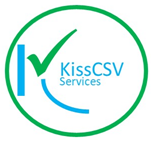
Keeping your projects simple, straightforward & compliant...
Data Integrity
Data integrity is the quality and reliability of the data that is generated, collected, analyzed, and evaluated throughout the lifecycle of a product. It is essential for ensuring the safety, efficacy, and quality of drugs, as well as for complying with regulatory requirements and facilitating technology transfer. And involves maintaining accuracy, consistency, completeness, legibility, authenticity, and availability of data across all stages of development, manufacturing, testing, and distribution.
Some of the challenges and best practices for achieving data integrity in pharma are:
· Protecting data from unauthorized access, modification, or deletion
· Implementing data governance policies and procedures to define roles and responsibilities for data management
· Applying data quality standards and methods to ensure data meets predefined criteria
· Performing data validation and verification to check the accuracy and completeness of data
· Documenting data sources, methods, results, and assumptions
· Using appropriate tools and technologies to store, process, analyze, and report data
· Ensuring data security measures such as encryption, authentication, backup, and recovery
· Establishing a culture of trust and accountability among all stakeholders involved in data activities
Data integrity is not only a technical issue but also a strategic one. It can have a significant impact on the success or failure of a product. Therefore, it is important for companies to invest in building a robust data infrastructure that supports their business objectives and regulatory obligations.
Adherence to regulatory standards like 21 CFR Part 11 and EU Annex 11 achieves precision and uniformity of data in GxP processes and equipment, in addition to ensuring conformity with the ALCOA+ principles.
We can tailor the process of ensuring data integrity to your needs.

